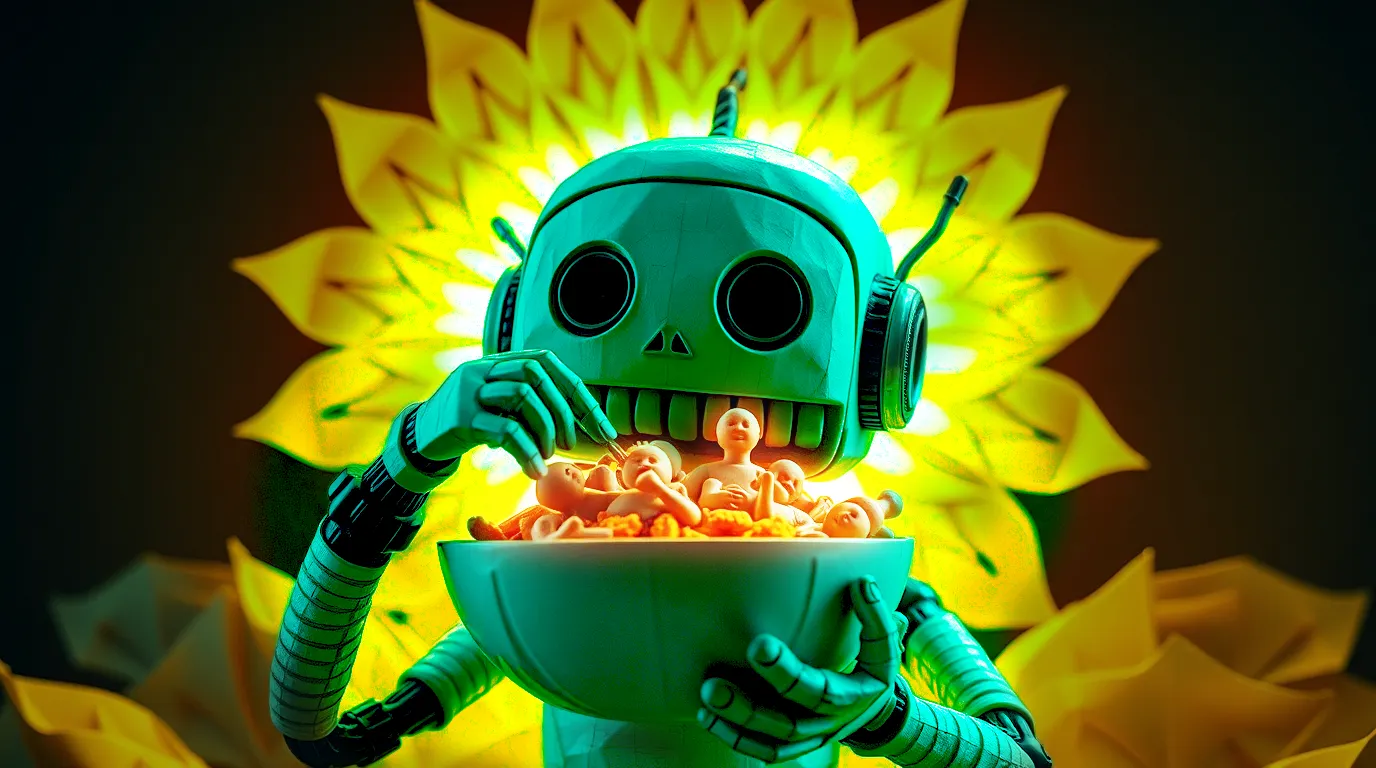Software might well eat the world, but artificial intelligence won’t eat humans. At least, that’s what Softbank CEO Masayoshi Son believes.
“People think if [AI] has emotions, it's a disaster, it's demonish, it's a bad thing because they're going to fight and kill you—destroy you,” Son said Monday during a panel discussion with OpenAI CEO Sam Altman in Tokyo. “I would say if their source of energy was protein, then it's dangerous.”
Luckily for us, however, “their source of energy is not protein, so they don't have to eat us,” Son noted.
Son and OpenAI’s CEO had a wide-ranging discussion about the future and the impact of AI in the world, touching on a number of things that are giving us protein-beings agita, beyond the fear that AI will devour us. Lots of critics, for instance, believe that the real existential threat to humans is economic—that within a decade or so, AI will wholly replace us in the workforce.
Altman brushed away those concerns: "People worry a lot and say, 'What is this going to mean for all of the jobs?' And then we always find new things to do," he said, comparing today's workers to how ancient people might view modern office jobs.
"If you think about many of our jobs in this room today, if you were a person 500 years ago, that person would look at what we're doing and say that's not really work," Altman added.
SoftBank was among the companies investing in Project Stargate—a $500 billion initiative announced last month that will fund faster deployment of AI in the US. The project plans to allocate 1,000 engineers to develop AI agents that could function like employees.
Altman's vision, which he outlined in Tokyo, went further—he described how AI agents would access to company systems, knowledge bases, and a deep understanding of business operations. He even posited the idea of “virtual companies” that would work exclusively with AI agents instead of humans.
Companies that fail to integrate these technologies, he warned, would face a disadvantage. He explained how the adoption of new tech is always an advantage. "During the Bronze Age, they were able to forge blades and cast handles together. What that meant is you could swing rather than just jab with a wooden handle that would break. That changed Europe," Altman explained. "Companies that don't integrate AI will have a hard time competing."
The stakes are high, and not everyone is convinced they are serious about risking so much. Elon Musk, for instance, a disgruntled co-founder of OpenAI who left the board and has been beefing with Altman, questioned whether SoftBank had enough money for Stargate
SoftBank has well under $10B secured. I have that on good authority.
— Elon Musk (@elonmusk) January 22, 2025
Son fired back at the new head of DOGE: "I will tell you (Elon), we will make it happen. We are not the bank—but we are SoftBank."
Son, who said he used ChatGPT daily, said that while competitors like DeepSeek were making headlines, OpenAI remained "leaps ahead." Altman agreed: "It is hard to really feel the exponential when you're living on it, because you can adapt so quickly, but we clearly are on a very steep one."
Altman and Son discussed the idea of "infinite long-term memory" capabilities—AI systems that could understand a person's entire life or company history. "That'll be a huge step forward," Altman said, predicting this technology would arrive within the next couple of years.
The executives also believe humanoid robots would become commonplace in the future.
"I think in a few years we can have really great humanoid robots and lots of other kinds of robots too, and that will also change the world," Altman said.
Hopefully, they won’t develop a taste for protein either.
Edited by Andrew Hayward

